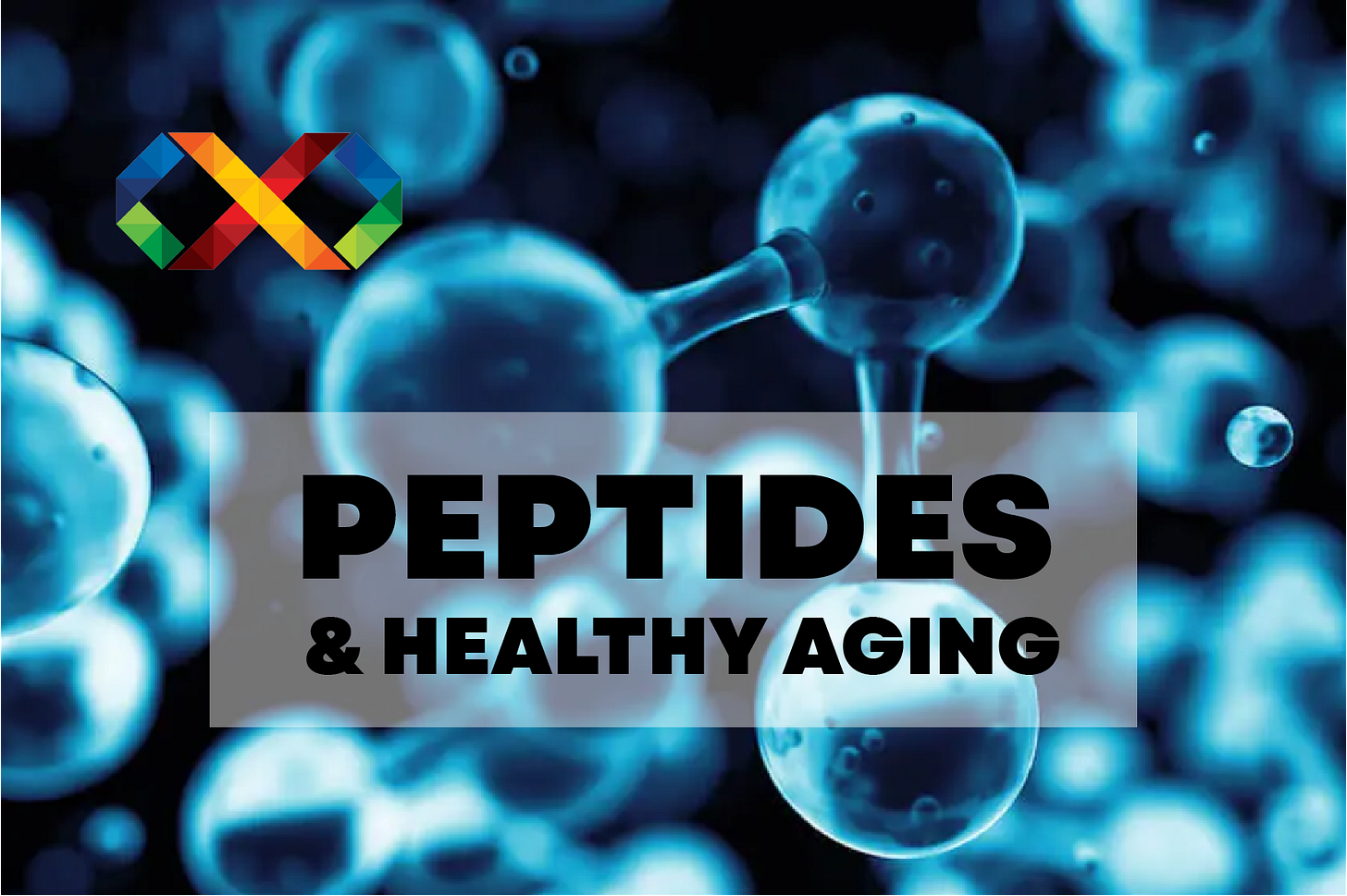Peptides: The Secret Biohack That Could Add Years to Your Life
Emerging Research Suggests Peptides May Help with Skin Health, Recovery, and Overall Wellness
What if you could slow down aging — not with expensive creams or risky procedures — but with tiny molecules already working inside you? Peptides are blowing up in biohacking circles, and new research suggests they could unlock longer life and faster recovery.
🧬 How Peptides Might Be Your Body’s Secret Repair Crew
Peptides are tiny chains of amino acids — basically mini-proteins that tell your cells what to do. Unlike larger proteins, their small size lets them slip through your bloodstream and get straight to work, fixing damage and upgrading your cellular machinery.
➡️ GHK-Cu — This copper-binding peptide is a skin and tissue superstar. It boosts collagen, reduces inflammation, and even helps repair DNA damage. A 2014 study found it speeds up wound healing and enhances skin quality.
➡️ BPC-157 — Born in your gut, this peptide is famous for rapid tissue repair. A 2019 study reported faster healing of tendons, muscles, and gut lining.
➡️ Epithalon — This synthetic peptide might extend lifespan by lengthening telomeres (the protective caps on your DNA). A 2003 rodent study saw a 20–40% increase in lifespan. Human data is thin — but biohackers swear by it.
🚀 Why Peptides Are Suddenly Everywhere (And What That Means for You)
Aging isn’t just about wrinkles — it’s your body’s machinery wearing down. Peptides are attracting attention because they target specific aging pathways, not just general health.
📈 In 2025, with stress, toxins, and inflammation levels at an all-time high, peptides are becoming a go-to solution. Unlike NAD+ supplements (which boost cellular energy), peptides like MOTS-c work on metabolism and inflammation directly. A 2023 study showed MOTS-c improves metabolic function and reduces inflammation.
Biohackers are paying attention — should you?
💉 Ready to Try Peptides? Here’s How to Get Started
Disclaimer: Always consult a healthcare provider before starting any new supplement or peptide regimen.
✔️ GHK-Cu for Skin & More: Try a 1% serum nightly or consult a doctor about injections (1–2 mg/day). Studies show smoother skin and improved healing in weeks.
✔️ BPC-157 for Recovery: Athletes love it for muscle and tendon repair. Typical dose: 200–500 mcg/day (injection or oral).
✔️ Epithalon for Longevity: Tricky to source, but biohackers report better sleep, recovery, and mental clarity. Suggested use: 5–10 mg/day for 10–20 days, cycled yearly.
🤔 What About This? Tackling Doubts
Skeptical? Fair enough. Most human trials are still underway. Epithalon’s lifespan boost, for example, is based on rodent data. And oral peptides often don’t survive stomach acid.
But here’s the thing:
✅ A 2025 review found that BPC-157 deliver results with minimal side effects.
✅ GHK-Cu has been in cosmetics for decades — it’s safe, just underexplored for longevity.
The catch? Hype can outpace evidence. Stick with reputable sources and skip shady sites.
🎯 Your Move
Peptides won’t make you immortal (yet), but they’re one of the most exciting biohacking tools around. From boosting collagen to accelerating tissue repair, they’re rewriting the playbook on aging.
👉 Start easy: Chat with a peptide-savvy doc.
👉 Tried peptides? Thinking about starting? Drop a comment — I’d love to hear how it’s going!



